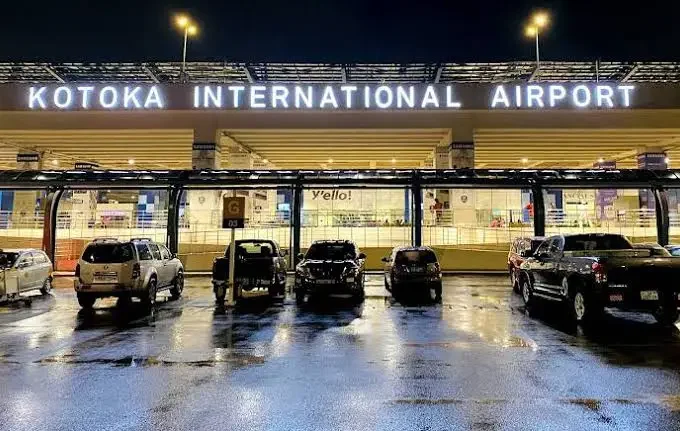
IMF-Backed Fuel Subsidy Removal Triggers Deadly Protests in Angola, Leaving 22 Dead and Over 1,200 Arrested

At least 22 people have been killed and more than 1,200 arrested following violent protests across Angola, sparked by the government’s controversial decision to remove long-standing fuel subsidies. The unrest, initially a strike by taxi drivers in the capital, Luanda, has since spiralled into one of the most widespread and deadly uprisings Angola has seen in years.
The fuel price reforms, supported by the International Monetary Fund (IMF), led to an immediate 33–50 per cent increase in diesel and petrol prices after subsidies were withdrawn in early July. While authorities defended the policy as fiscally necessary, the sudden spike in living costs ignited public frustration over poverty, inequality, and government mismanagement.
The fuel price issue is just the last straw that has reignited widespread public discontent. People are fed up. Hunger is rife, and the poor are becoming miserable.
According to police and local media reports, protests erupted in at least six provinces, with incidents of looting, arson, and clashes with security forces. Hundreds of shops, public buses, and taxis were vandalised. Among the 22 dead are civilians and at least two police officers. An estimated 197 people were injured, some critically.
The IMF, which has worked closely with Angola since 2018, described the subsidy reform as “fundamental” to ensuring fiscal sustainability and freeing up public funds for health, education, and poverty programmes. Fuel subsidies previously cost the government over $3 billion annually, roughly 4 per cent of GDP.
Phasing out fuel subsidies is an essential structural reform,” said IMF representative Víctor Lle dó in April.
However, he stressed that targeted protections for the most vulnerable must accompany such policies. The Fund has recommended expanding Angola’s Kwenda cash transfer programme, as well as offering transport vouchers and food support.
The Lourenço administration failed to prepare the public or implement mitigation measures before rolling out the price hikes. While fuel subsidies disproportionately benefit wealthier citizens, in Angola, where public transport, farming, and informal markets depend heavily on cheap fuel, the social cost of a sudden removal has been severe.
The backlash reflects not just opposition to the policy itself, but accumulated anger over corruption, youth unemployment, and widening inequality in a country that remains one of Africa’s largest oil producers, yet where much of the population lives in poverty.
This is a crisis of trust. Angolans are asking why, in an oil-rich country, they must carry the burden of economic reform without relief or transparency.
The Angolan government has deployed additional security forces to affected cities and imposed curfews in several areas. President João Lourenço has called for calm and pledged to listen to citizens’ concerns, but has not announced any plans to reverse or delay the subsidy removal.
Allegations of Excessive Force
The government’s handling of the protests has drawn sharp criticism from human rights groups. Human Rights Watch accused Angolan police of using excessive force against what initially began as a largely peaceful demonstration. Protesters reported the use of tear gas, rubber bullets, and physical assaults by law enforcement.
On Thursday, the Office of the UN High Commissioner for Human Rights (OHCHR) called for prompt, independent investigations into the deaths and allegations of abuse.
Unverified footage suggests that security forces used live ammunition and tear gas to disperse protesters, which points to an unnecessary and disproportionate use of force,” said OHCHR spokesperson Thameen Al-Kheetan.
A History of Crackdowns
Angola has a long history of suppressing dissent. The ruling People’s Movement for the Liberation of Angola (MPLA) has remained in power since the country gained independence from Portugal in 1975. Civil society groups and opposition figures frequently accuse the government of stifling protests and dissent through harsh police tactics and legal intimidation.
While President Lourenço has vowed to implement economic reforms and tackle corruption, critics argue that the government’s austerity measures are disproportionately affecting the poor. At the same time, elite interests remain shielded from economic pain.
With tensions still high and more demonstrations reportedly being planned, Angola’s efforts at economic reform could further destabilise the nation unless accompanied by social dialogue, compensation measures, and urgent poverty relief.
Read More:
- France’s Factory Shutdowns Signal Deeper Crisis as Africa Reclaims Control of Resources
- Court Upholds Removal of Pro-GMO AFAN President After 6-Year Unlawful Tenure
About The Author
%s Comment
Leave a Reply Cancel reply
Related Articles
Ghana to Rename Kotoka International Airport
Ghana’s government is preparing to rename the country’s main international gateway, Kotoka...
ByWest Africa WeeklyFebruary 4, 2026Russia Congratulates Ibrahim Traoré on Assuming AES Presidency
Russia has congratulated Burkina Faso’s President, Captain Ibrahim Traoré, on his assumption...
ByWest Africa WeeklyFebruary 4, 2026AES Condemns Niamey Airport Attack, Warns of Coordinated Destabilisation
The Alliance of Sahel States has strongly condemned the armed attack on...
ByWest Africa WeeklyFebruary 2, 2026Mali Cedes Strategic Land to Guinea to Deepen Trade Cooperation
Mali has approved the transfer of a strategic parcel of land to...
ByWest Africa WeeklyFebruary 2, 2026












We as Africans are really handicap when it comes to the welfare of our people when it comes to leadership, am highly disappointed with IMF dictating our future. Just look at Nigeria ever since subsidy was removed we have never seen good things.